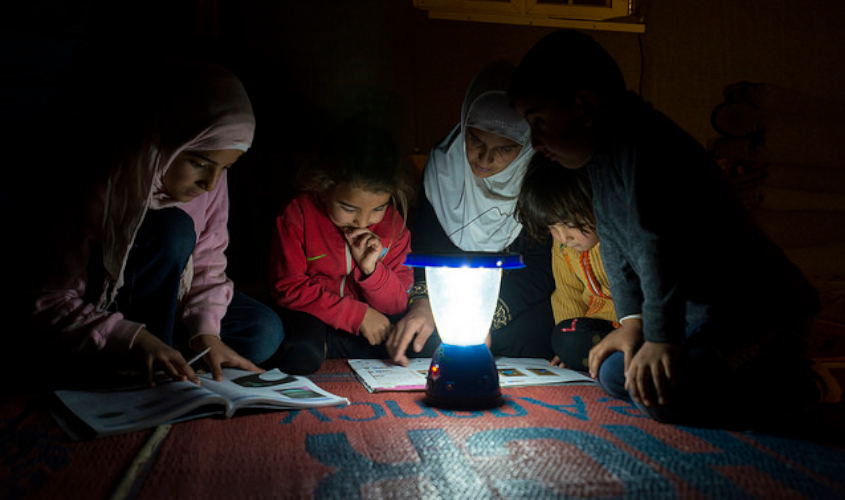On Universal Children’s Day, Business Community Steps Up To Ensure Quality Education for All

Children study by solar lamp in Jordan. Photo © Ikea Foundation
Today, UNICEF announced that 180 million children face worse outcomes than their parents; these children – who live in 37 different countries – are more likely to be stuck in poverty, be out of school, or killed in a violent death than children in their countries 20 years ago.
In 2015, the United Nations set a global that by 2030, every child would receive a quality education. Enshrined in Sustainable Development Goal 4 is the notion that education is a foundational block for all other sustainable development goals; without quality learning, future generations will not be equipped with the tools to improve their societies, tackle climate change, combat poverty, or strengthen governance.
As we celebrate Universal Children’s Day, the Global Business Coalition for Education (GBC-Education) emphasizes the importance of the private sector in addressing the increasing deficit in education and skills. Through GBC-Education’s initiatives, the business community is actively seeking to support those who are most in need.
The Youth Skills and Innovation Initiative – launched during this year’s United Nation General Assembly at our annual breakfast event – seeks to close the skills and talent gap forming among today’s young people. In partnership with the business community – including RELX Group as a research partner – GBC-Education is looking at ways to prepare today’s youth for a technologically advanced workforce.
Another project that is currently making an impact on the ground is the Rapid Education Action (REACT) initiative. REACT helps the private sector to deploy its available resources and know-how in zones of conflict, natural disaster, or anywhere else impacted by crisis by connecting business and implementation partners in the field to establish sustainable and impactful partnerships on the ground.
These two initiatives portray a slice of the total work that the business community is doing for education. Many member companies are taking the lead in bringing quality learning to children throughout the world. Just recently, the Oando Foundation in partnership with Sumitomo Chemical – both GBC-Education members – announced the creation of solar-powered Information and Communications Technology (ICT) centers in public-primary schools across Nigeria. Other member companies – such as Voith – are establishing code clubs to support girls’ education in Tanzania.
By bringing in the private sector’s innovation and unique talents, global institutions and governments will be able to close the education gap and help youth build better futures for themselves and their families.
